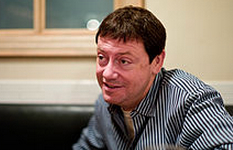Editor’s note: This post is part of a series by Tren Griffin, a senior director at Microsoft who previously worked at Craig McCaw’s Eagle River. Other posts include “A dozen things I’ve learned about business” and “A dozen things I’ve learned about investing.”

1. “The problem is that extraordinary performance comes only from correct non-consensus forecasts, but non-consensus forecasts are hard to make, hard to make correctly and hard to act on.” Howard Marks. Humans are terrible forecasters for many reasons explained by behavioral economics, not the least of which is that we often see false patterns and ascribe false meaning to them. Having great pattern recognition skill is critical in venture capital and one pattern that you see is that really great entrepreneurs often break some rule(s) that you thought were unbreakable. History only rhymes and never repeats precisely.
2. “The edge from optionality is in the larger payoff when you are right, which makes it unnecessary to be right too often.” Nassim Taleb.
3. “The frequency of correctness does not matter; it is the magnitude of correctness that matters.” Michael Mauboussin. Read the Mauboussin essay on the Babe Ruth Effect and profit.
4. “The key insight that actual returns are incredibly skewed. The more a VC understands this skew pattern, the better the VC. Bad VCs tend to think the dashed line is flat, i.e. that all companies are created equal, and some just fail, spin wheels, or grow. In reality you get a power law distribution.” Peter Thiel. Much of what venture capitalists invest in are companies that sell an offering that is social in nature and anything social will experience” path dependence.” And when there is path dependence you will often see its signature which is a power law. I like this passage: “in anything that involves social influence, it is very difficult to predict the outcome. Many people in areas where social influence operates are often paid for good luck. And if you are in a good place in life now, it could mean that you’ve got a lucky break early in life. So be humble.”

5. “We like to say that ‘more startups die of indigestion than starvation.’ We are all fascinated by the stories of Steve Jobs and Jack Dorsey, who work on two companies at once, but this is not the norm.” Bill Gurley. One major cause of lost focus is to much money raised by the company too early. Nothing makes people both focused and creative like a lack of money. A little fear focuses the mind. I enjoy explaining to young entrepreneurs how much a fancy chair costs in terms of potential dilution in equity returns.
6. “Where most entrepreneurs fail is on the things they don’t know they don’t know.” Vinod Khosla. Anyone who does not read Zeckhauser on this point is missing out in a huge way. I suggest this.
7. “All of us in the venture capital area are going through a triage, where we have to decide which portfolio companies are so wounded we will never save them. As horrible as it is to go through that process, it’s a cleansing process. To have some branches grow and bear fruit, you have to trim others.” Fred Wilson. I love this quote since it is from the first Internet bubble. Anyone who lived through that period has a different muscle memory than people who have not done so. Marc Andreesseen has said he thinks people who went through the Internet crash are “scarred” which I believe can be both good and bad. Internet bubble survivors are neither better nor worse as founders or investors. Instead, they are just different.

8. “Don’t be a Google Bitch, don’t be a Facebook Bitch, and Don’t be a Twitter Bitch. Be your own Bitch.” Fred Wilson. Having a single supplier of *anything* creates “wholesale transfer pricing power/supplier hold up” problems. My blog post on that is here.
9. “[In venture capital there are] low barriers to entry and high barriers to exit.” Bill Gurley. Too much money arriving in the venture capital industry from limited partners has been shown to depress industry returns. In other words, too much supply in terms of investable cash can be a problem as it is in any capital business.
10. “Dinner quote from #AndreesonHorowitz key to wisdom is judgment. Key to judgment is enough bad judgments. Experience in startups matters!” One great way to learn is from other people’s mistakes (not to pee on an electric fence for example). And often the best way to do that in a scalable way is to read a lot and to talk to as many people who have actually done things that can result in mistakes as you can.

11. “In business, I look for economic castles protected by unbreachable ‘moats’.” Warren Buffett. My post on moats is here. The idea that in a startup all you need is revenue growth is bullshit and if someone argues to the contrary hold your wallet tightly and walk swiftly away. Bill Miller pointed out “you don’t bet, you don’t gamble, you don’t invest, unless you have some competitive advantage quoting Puggy Pearson, a professional gambler with only a 5th Grade formal education who once said: “There ain’t only three things to gambling. “Knowing the 60/40 end of a proposition, money management, and knowing yourself.”
12. “Venture capital is a services business.” Bill Gurley. If you are searching for a venture capitalist and have a choice, talk to actual entrepreneurs (cold call if you must) about which VCs provide the best service.
Tren works at Microsoft. Previously he was a partner at Eagle River, a private equity firm established by Craig McCaw. His blog can be founsd atwww.25iq.com and he is @trengriffin on Twitter.



